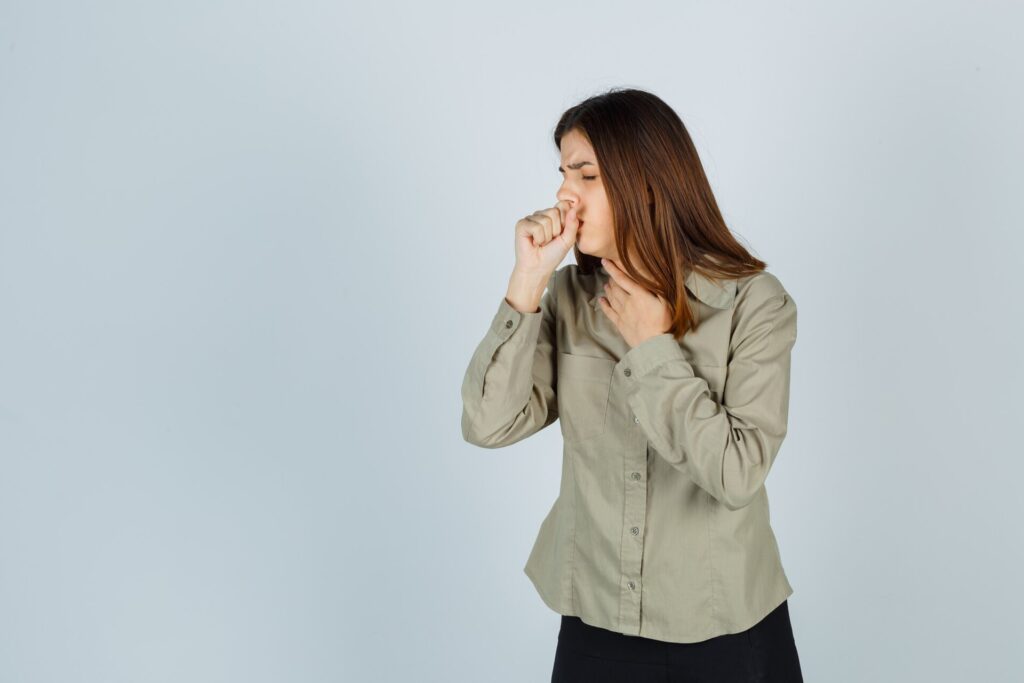Are you struggling to breathe through your nose? You’re not alone. Difficulty breathing through the nose can be caused by a variety of factors, ranging from allergies to chronic sinusitis. Fortunately, there are remedies and solutions available to help improve nasal breathing and provide relief from congestion and discomfort.
One common cause of nasal breathing difficulties is nasal congestion, which can be caused by allergies, colds, or sinus infections. When the nasal passages become inflamed and swollen, it can be hard to breathe through the nose. Remedies for a blocked or stuffy nose include using saline nasal sprays, taking over-the-counter decongestants, or using nasal strips to open up the nasal passages.
Allergies can also play a significant role in nasal breathing issues. Allergic rhinitis, commonly known as hay fever, can cause symptoms such as sneezing, itching, and congestion. Avoiding triggers, such as pollen or pet dander, and using antihistamines or nasal corticosteroids can help alleviate the symptoms and improve nasal breathing.
In addition to allergies, chronic sinusitis can also lead to difficulty breathing through the nose. This condition occurs when the sinuses become inflamed and infected, causing symptoms such as facial pain, nasal congestion, and difficulty breathing. Treatment options for chronic sinusitis may include antibiotics, nasal corticosteroids, or even surgery in severe cases.
Nasal polyps, which are small growths in the lining of the nasal passages, can also interfere with nasal breathing. These polyps can block the nasal passages and make it difficult to breathe through the nose. Treatment options for nasal polyps may include medications, such as corticosteroids, or surgical removal.
Another common cause of nasal breathing difficulties is a deviated nasal septum. The nasal septum is the wall that separates the nostrils, and if it is crooked or misaligned, it can obstruct airflow through the nose. Surgical correction of a deviated septum may be necessary to improve nasal breathing.
Lastly, nasal congestion during sleep can also impact breathing. Conditions such as sleep apnea or nasal valve collapse can cause nighttime nasal congestion, leading to difficulty breathing through the nose. Treatment options for sleep-related nasal congestion may include continuous positive airway pressure (CPAP) therapy or surgical interventions.

In conclusion, there are various causes of difficulty breathing through the nose, ranging from allergies to chronic sinusitis. However, there are remedies and solutions available to improve nasal breathing and provide relief from congestion and discomfort. By identifying the underlying cause and seeking appropriate treatment, you can breathe easier and enjoy better overall respiratory health.
Common Reasons Why You Can’t Breathe Through Your Nose
One of the most frustrating experiences is not being able to breathe through your nose. It can make everyday activities like sleeping, eating, and exercising difficult. There are several common reasons why you may be experiencing this issue.
Deviated Septum: A Common Culprit
A deviated septum is a condition where the wall that separates your nostrils is crooked or off-center. This can make it difficult for air to flow freely through your nose, causing congestion and breathing problems.
Nasal Allergies: A Frequent Trigger
Allergies can also cause nasal congestion and difficulty breathing. When you are exposed to an allergen, such as pollen or pet dander, your body releases histamines that can cause your nasal passages to become inflamed and swollen. This can lead to a blocked or stuffy nose.
By understanding the common reasons behind your nasal breathing issues, you can take the necessary steps to find relief and improve your overall quality of life.
How To Fix a Blocked or Stuffy Nose
Blocked or stuffy noses can be a frustrating and uncomfortable experience. However, there are several effective remedies that can help alleviate this condition.
1. Nasal irrigation
Using a saline solution to rinse the nasal passages can help clear out mucus and reduce congestion. This can be done using a Neti pot or a nasal spray.
2. Steam inhalation
Inhaling steam can help moisten the nasal passages and loosen mucus, making it easier to breathe. This can be done by leaning over a bowl of hot water and covering your head with a towel.
3. Using a humidifier
Adding moisture to the air can help relieve nasal congestion. Using a humidifier in your bedroom or other living spaces can help keep the air moist and prevent dryness.
4. Over-the-counter medications
There are various over-the-counter medications available, such as decongestants and antihistamines, that can provide temporary relief from nasal congestion. It is important to follow the instructions and consult a healthcare professional if symptoms persist.
5. Avoiding triggers
Identifying and avoiding triggers, such as allergens or irritants, can help prevent nasal congestion. This may include staying indoors during high pollen seasons or using air filters to remove allergens from the air.
What Should I Do About Nasal Congestion and Breathing Problems?
Nasal congestion and breathing problems can be quite frustrating, but there are several steps you can take to alleviate these issues. First and foremost, it’s important to identify the underlying cause of your nasal congestion. If it’s due to allergies, avoiding triggers and taking antihistamines can provide relief. Additionally, using a saline nasal spray or rinse can help clear out any blockages and reduce inflammation.
In cases where nasal congestion is caused by a cold or sinus infection, over-the-counter decongestants can be effective in providing temporary relief. However, it’s important to use these medications as directed and not for an extended period of time to avoid rebound congestion.
If your nasal congestion persists or is accompanied by other symptoms such as facial pain or recurring infections, it’s advisable to seek medical attention. A healthcare professional can evaluate your condition and recommend appropriate treatment options, which may include prescription medications or surgical interventions.
When to Seek Medical Attention
If your nasal congestion and breathing problems are severe, persistent, or affecting your quality of life, it’s important to consult a healthcare professional for further evaluation and treatment. Additionally, if you experience recurring sinus infections, facial pain, or nasal polyps, it’s advisable to seek medical attention as these may require specialized treatment.
How To Improve Your Nasal Breathing
Improving your nasal breathing can greatly enhance your overall well-being. Here are some effective strategies to help you breathe better through your nose:
1. Practice nasal breathing exercises
Engage in activities that promote nasal breathing, such as yoga or Pilates. These exercises can strengthen your nasal passages and improve airflow.
2. Keep your nasal passages moist
Use a saline nasal spray or rinse to keep your nasal passages moist and clear of any blockages. This can help alleviate congestion and promote easier breathing.
3. Avoid irritants and allergens
Identify and avoid triggers that may cause nasal congestion, such as dust, pollen, or strong odors. Keep your living space clean and free from potential allergens.
4. Use nasal strips or dilators
Nasal strips or dilators can help open up your nasal passages and improve airflow. These can be particularly helpful during sleep or physical activities.
5. Seek medical advice
If your nasal breathing issues persist or worsen, it is advisable to consult a healthcare professional. They can provide a proper diagnosis and recommend appropriate treatment options.
By implementing these strategies, you can enhance your nasal breathing and experience improved overall respiratory health.
Why Are Allergies Causing Nasal Breathing Issues?
Allergies can significantly impact your ability to breathe through your nose. One reason for this is that allergies cause inflammation in the nasal passages, making it difficult for air to flow freely. Additionally, allergies can trigger an increase in mucus production, leading to congestion and blockage in the nasal passages. This can further restrict your ability to breathe properly.
The Role of Histamines
Histamines are chemicals released by the body in response to allergens. They cause the blood vessels in the nasal passages to dilate, resulting in swelling and congestion. This can make it challenging to breathe through your nose.
Common Allergens
Common allergens that can trigger nasal breathing issues include pollen, dust mites, pet dander, and mold. When these allergens are inhaled, they can irritate the nasal passages and trigger an allergic reaction.
By identifying and avoiding these allergens, you can minimize the impact they have on your nasal breathing. Additionally, over-the-counter antihistamines and nasal sprays can help reduce inflammation and alleviate symptoms.
Chronic Sinusitis: Why Is Your Nose Difficulty Breathing?
Chronic sinusitis is a condition that can cause difficulty in breathing through the nose. This condition occurs when the sinuses, which are air-filled spaces in the skull, become inflamed and swollen. The inflammation can block the nasal passages, making it hard for air to flow freely.
There are several factors that can contribute to chronic sinusitis. One common cause is a bacterial or viral infection, which can lead to inflammation and swelling of the sinuses. Other factors include allergies, nasal polyps, and structural abnormalities in the nose, such as a deviated septum.
If you are experiencing difficulty breathing through your nose due to chronic sinusitis, it is important to seek medical attention. Your doctor can evaluate your symptoms and recommend appropriate treatment options. This may include medications to reduce inflammation, nasal irrigation to clear the sinuses, or in severe cases, surgery to correct any structural abnormalities. It is important to address chronic sinusitis as it can significantly impact your quality of life and overall health.
What Should I Do About Nasal Polyps and Breathing Difficulties?
Nasal polyps can be a major cause of breathing difficulties, as they are growths that form in the lining of the nasal passages or sinuses. These polyps can block the airflow and make it hard to breathe through your nose. If you are experiencing breathing difficulties due to nasal polyps, it is important to consult with a healthcare professional for proper diagnosis and treatment. Treatment options for nasal polyps may include medications such as nasal corticosteroids to reduce inflammation, antibiotics to treat any infections, or even surgery to remove the polyps. It is important to follow the recommended treatment plan and maintain regular follow-up appointments to monitor the condition. Taking steps to manage and treat nasal polyps can help improve your breathing and overall quality of life.










